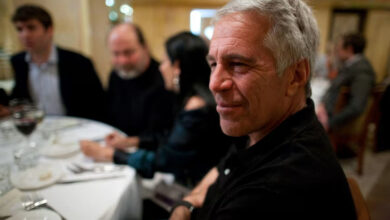
US Secretary of State Rex Tillerson said before a visit to India next week that the Trump administration wanted to “dramatically deepen” cooperation with New Delhi, seeing it as a key partner in the face of negative Chinese influence in Asia.
In another comment likely to upset Beijing, he said Washington saw room to invite others, including Australia, to join US-India-Japan security cooperation, something Beijing has opposed as an attempt by democracies to gang up on it.
The remarks coincide with the start of a week-long Chinese Communist Party congress at which President Xi Jinping is seeking to further consolidate his power.
“The United States seeks constructive relations with China, but we will not shrink from China’s challenges to the rules-based order and where China subverts the sovereignty of neighboring countries and disadvantages the US and our friends,” Tillerson told the Center for Strategic and International Studies think tank.
“India and the United States should be in the business of equipping other countries to defend their sovereignty, build greater connectivity, and have a louder voice in a regional architecture that promotes their interests and develops their economies,” Tillerson added.
The US decision to expand relations with India almost certainly will upset India’s rival, Pakistan, where Tillerson also will stop next week, said a senior State Department official, speaking on condition of anonymity.
Pakistan was the main US ally in South Asia for decades, but US officials are frustrated with what they charge has been Pakistan’s failure to cut support for the Taliban insurgency in Afghanistan, where the administration wants India to play a bigger role in economic development.
As part of a South Asia strategy unveiled by Trump in August, Tillerson is expected to press Islamabad, which denies aiding the Taliban, to take stronger steps against extremists and allied groups and intensify efforts to pressure them to agree to peace talks with Kabul.
“We expect Pakistan to take decisive action against terrorist groups based there that threaten its own people and the broader region,” Tillerson said.
Trump has threatened further cuts in US aid to Pakistan if it fails to cooperate.
China, a strategic rival to the United States and India, is also vital to Trump’s efforts to roll back North Korea’s efforts to create nuclear-armed missiles capable of reaching the United States, an issue expected to top the agenda in Trump’s Nov. 8-10 Beijing visit.
A senior State Department official defended the timing of the speech, saying Tillerson also said he wanted a constructive relationship with China.
“For many decades the United States has supported China’s rise,” said the official. “We’ve also supported India’s rise. But those two countries have risen very differently.”
In Beijing, foreign ministry spokesman Lu Kang said China hoped the United States could abandon bias when viewing its actions overseas.
“China will never develop itself at the expense of other countries,” Lu told a regular briefing on Thursday. “At the same time we will never give up our justly deserved rights and interests.”
Healthy relations between China and the United States are good for the people of both countries and are expected by the Asia-Pacific region, he added.
Tillerson did not say what he meant by creating an alternative to Chinese infrastructure financing, but said the Trump administration had begun a “quiet conversation” with some emerging East Asian democracies at a summit in August.
He said Chinese financing was saddling countries with “enormous” debts and failing to create jobs.
“We think it’s important that we begin to develop some means of countering that with alternative financing measures.”
“We will not be able to compete with the kind of terms that China offers, but countries have to decide what are they willing to pay to secure their sovereignty and their future control of their economies and we’ve had those discussions with them as well,” he said.




